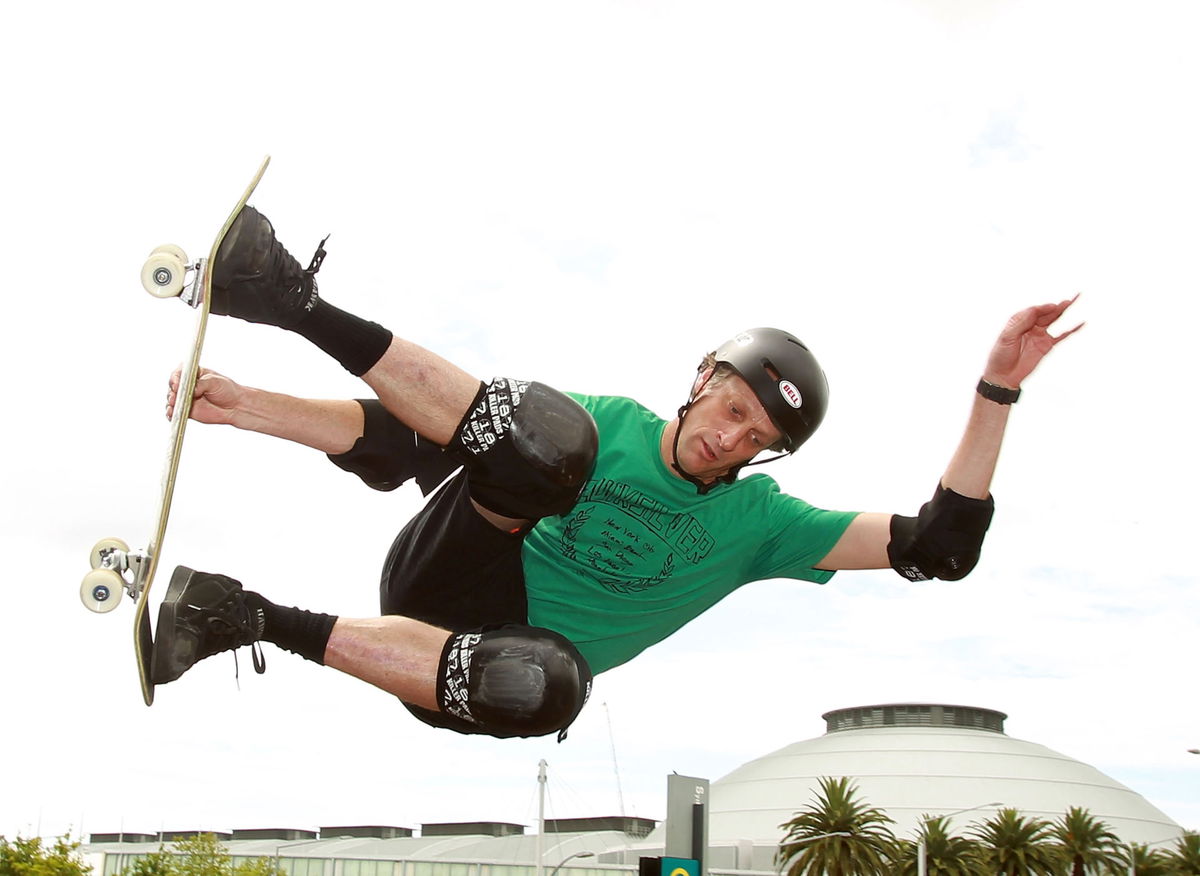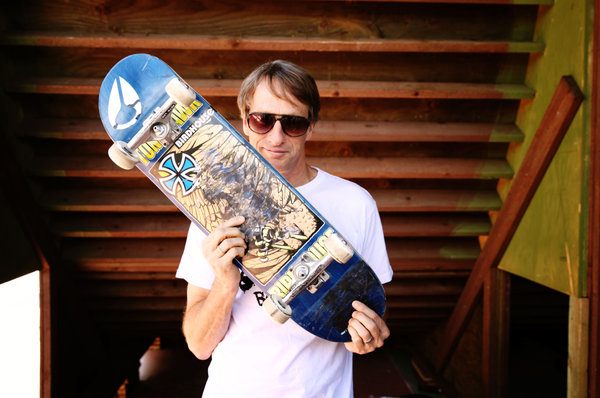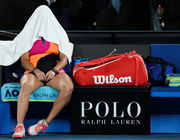

The famous American skateboarder, Tony Hawk, has a lot of achievements under his belt including a defining 900 twist at the 1999X games. But he has not been able to achieve these endeavors without taking a fair share of risks in his career. In an interview with UFC star, Joe Rogan, the skateboarder confessed about his traumas and provided his fans with his two cents regarding a few incidents. Notably, they were so serious that they could have ended his career as an athlete.
Watch What’s Trending Now!
ADVERTISEMENT
Tony Hawk dominated skateboarding competitions throughout the 1980s and 1990s, with over 73 title victories. Even post-retirement from the sport in 1999, Hawk has been actively involved in promoting it. This includes the Tony Hawk foundation, which is known for developing skate parks for kids in low-income neighborhoods.
View this post on Instagram
ADVERTISEMENT
In a recent Instagram post, Tony Hawk was seen promoting skateboarding in his collaboration with children’s toy giants, Hot Wheels.
ADVERTISEMENT
Tony Hawk has researched extensively about brain conditions
In the Joe Rogan Experience podcast, that is hosted by the UFC color commentator, Tony Hawk was invited to share his experience about the perils of skateboarding. While discussing the risk factors involved in dealing with big aerial ramps, Hawk mentioned how modern-day skating protocols have been refined to eradicate dangers to athletes.

ADVERTISEMENT
When asked about whether or not CTE (Chronic Traumatic Encephalopathy), a degenerative brain disorder that is considered to be brought on by repetitive head trauma and concussions, is a risk that skaters face, Tony Hawk mentioned that it was certainly a concern. Additionally, he explained how he himself has been a victim of over 30 concussions in his lifetime, with 3 or 4 of them being serious. When Joe asked if he was ?out cold?, the skateboarder replied ?I woke up in the ambulance – yeah???
Top Stories
How Much Prize Money Did Elena Rybakina Earn After Taxes for Winning the Australian Open 2026?

Elena Rybakina’s Coach Slammed as Australian Open Final Tension Boils Over: “So Gross”

UFC 325 Payouts: How Much Will Alexander Volkanovski, Diego Lopes, and Others Earn

Michael Strahan Confirms Stance on Retirement from FOX While Announcing Future Plans

Bills Make Final Decision on Firing Sean McDermott’s Staff as Joe Brady Demands Major Changes From Josh Allen & Co.

Aryna Sabalenka Curses Team After Revealing Details of “Hysterical Moment” in Melbourne

ADVERTISEMENT
Tony Hawk has proactively tried to figure out if he is susceptible to serious brain conditions. Furtrthermore, Hawk revealed that as his mother was a victim of Alzheimer?s dementia, the athlete made extra effort to get himself checked. To his relief, no symptoms were found. While his research had equipped him with enough knowledge for him to know that he was safe from CTE, he stated that he would never put himself in a position, where he would be at risk of an injury.
The ‘Vert’ skater puts safety before everything else
During the conversation, Hawk further continued, ?I am not going out there to have concussions anymore, I?ll tell you that,? said the pioneer of vertical modern skateboarding. While Hawk agrees to have taken certain supplements to improve his well-being, he was thankful that most of his injuries were not serious. Apart from a couple of concussions that affected his daily life, the athlete states that he does not feel their effects anymore.?
ADVERTISEMENT
Watch This Story: Here’s how these big athletes turned into big entrepreneurs
While skateboarding is a dangerous sport in itself, the refinement of the rules and regulations to suit safety standards was something that was not present at the beginning. Recalling some horrific moments from his career, the inventor of some of the most dangerous moves in skateboarding, like the 540 frontside rodeo flip, and the ollie-to-indie, makes it amply clear that how his career was not built without risks.
ADVERTISEMENT
ADVERTISEMENT
ADVERTISEMENT